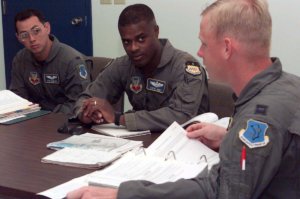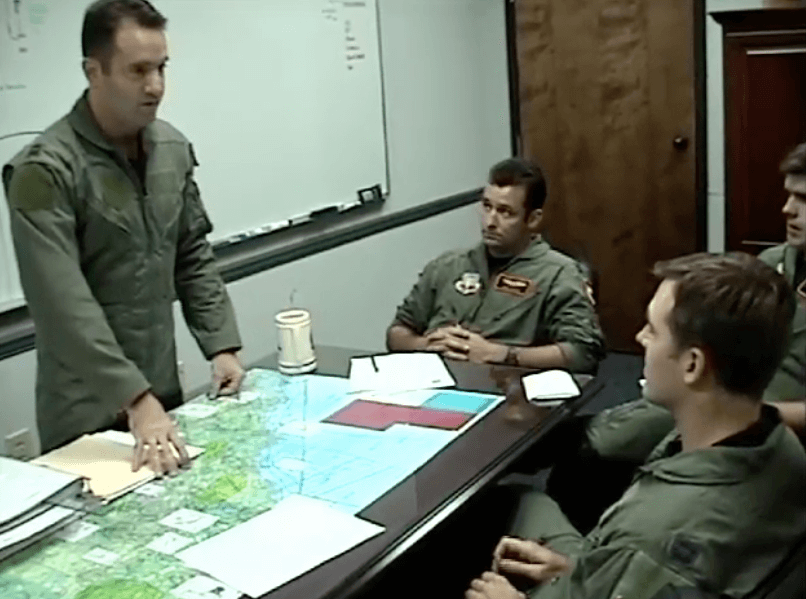High performing leaders consistently execute strategies that lead to growth. They’re step out of their comfort zones, learn new processes & take risks to stay relevant.
One strategy that Air Force fighter pilots leverage to improve performance is called a Mission Debrief. It’s executed at the end of every mission to enhance operational effectiveness, ensure safety, and promote trust and is a tool your team can take advantage of to grow as well.

The concept of the debrief is simple yet effective: Review objectives, share mistakes, insights and lessons learned, and update training processes to make sure execution improves in the future. Debriefing ensures accountability and is one of the most sacred components of a squadron’s culture.
Here are 6 Components of an effective Debrief:
Removing Rank and Nametags ensures there is no ego or “personality” in the debrief because they get in the way of growth. Everyone is on an equal footing in the debrief. If pilots are afraid to voice opinions and give mission critical feedback for fear of retribution or embarrassment, the root cause of mistakes will never be revealed. Humility is critical.

Waldo Debriefing with his wingmen.
Next, the team Reviews Mission Objectives to explore whether or not they were achieved. Did we hit the target, execute the search and rescue, or deter a potential threat or not? Was the mission accomplished?
We then Analyze Performance and investigate why the objectives were or were not achieved. Overall, we quantify expectations, ask probing questions, reveal unknown contingencies or threats, explore execution mistakes, examine errors in the briefing and planning, and uncover intelligence gaps. Each teammate (wingman) recognizes their responsibility for the results and helps determine root causes for mistakes and wins.
When analyzing performance, it’s essential that everyone openly shares mistakes. Taking ownership is the key. No one passes blame, points a finger, or gets defensive. Leaders promote this ego-free culture by being the first to openly share mistakes and then soliciting feedback. While this takes courage, it sets the example for others to follow – knowing that their mistake may be crucial to the growth of the entire team.
The next step is Discover Trends and Reveal lessons learned. This involves asking deep questions, probing for blind spots in situational awareness and brainstorming strategies for improving performance. The team comes up with an instructional fix, with the flight lead normally making final approval. This can involve updating training procedures, incorporating new systems, and even revising briefing strategies.
Finally, the group Distributes the Findings among the team and other units influential to the team’s success (i.e. intelligence, maintenance, etc.). This way, everyone learns from the mistakes and the overall effectiveness of the unit improves.

As a leader, you too can leverage the power of a debrief to ensure lessons are learned following a major project, sales call, safety incident, product launch or conference. The agenda should be simple, easy to follow, and not be overwhelming. Leverage the debrief to celebrate victories, share insights, learn from mistakes, and grow stronger situational awareness.
Understanding the strengths and weaknesses of your team and identifying opportunities for growth is critical for any team committed to improvement. Use the debrief to guide your team through barriers and identify blind spots in operations, processes, and communication protocols. When you do, you’ll promote a culture of continuous learning and trust, and create a more cohesive, accountable, and mission-ready team of high performers!
Never Fly Solo®